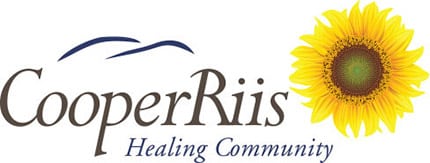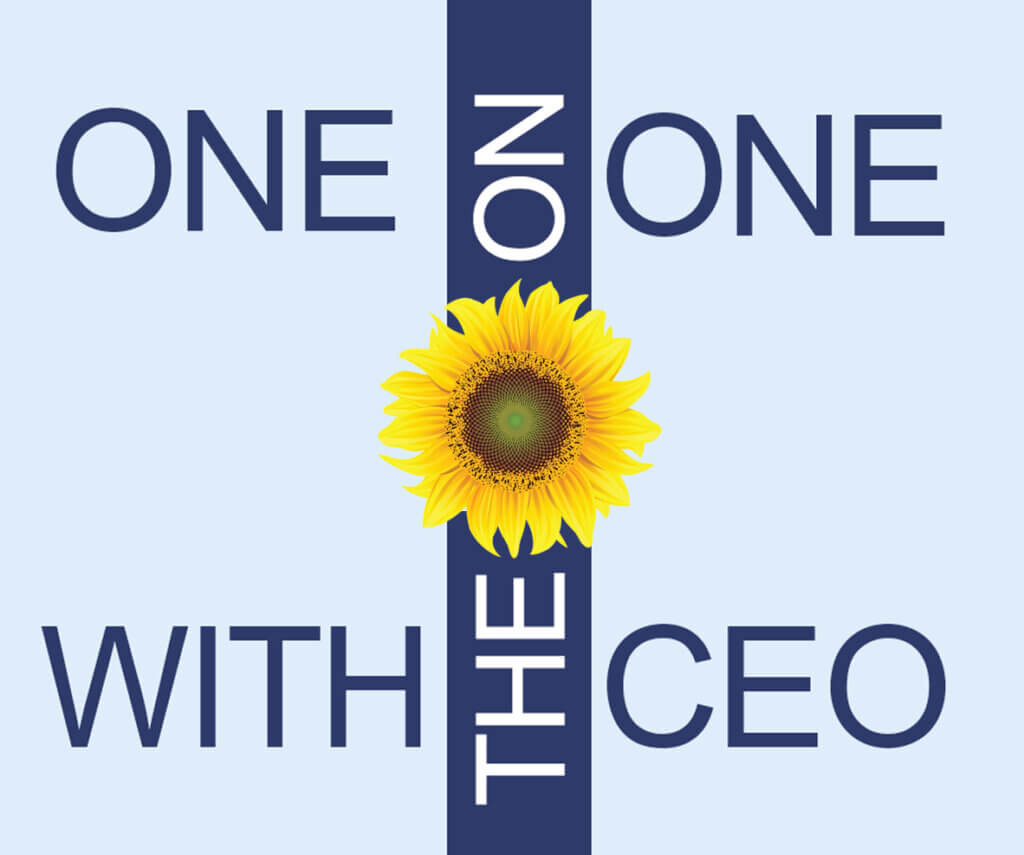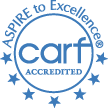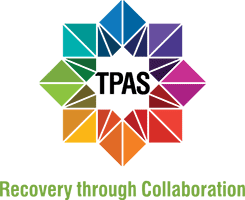
“I love about what you guys are doing… I’ve been wanting to see if I can make this beautiful marriage between music and mental health… There’s so much overlap that exists there.”
Eva Marie
Vocalist/Eva Under Fire
Read the entire transcript below:
[ERIC] Hey, I’m Eric, the CEO here at CooperRiis. I don’t know if you’ve had a chance to check us out. We’re a non-profit treatment center that works with adults with mental illness. And we’ve got a bunch of different programs here in Western North Carolina.
[EVA] What I love about what you guys are doing- and thank you so much for chatting with me- is because, I’ve been wanting to see if I can make this beautiful marriage between music and mental health, right? There’s so much overlap that exists there. So, I really appreciate your time too.
[ERIC] Oh, yeah, sure. I’m not a professional interviewer. So if I fall all over myself and don’t know the right things, bear with me. But I was really interested in talking with you, because when I heard about you, I went and checked out your music and I really liked it. Do I have it right, Eva? Did you…you started in music what a while ago and then recently decided to become a psychologist?
Mental Health and Music As Therapy
[EVA] Yeah. So, it’s interesting. You know, my background has always been trying to understand myself, right? So, I go and I take all these psychology classes. There’s been a lot of things. I think anybody that wants to get into therapy and become a therapist or a counselor of any kind, there’ve probably been through some things that have spurred that right passion to get into that direction. So, that’s always been… even from when I was in my undergraduate program, where my head was at.
And I thought, well, I love music. Music is my therapy, but I would also love to learn more about therapy in general. So, I’m going to take classes. And so I continued on this track. Both things were part of my life for years. I thought, ‘well, one of these is going to work out somehow. I’ll figure out how to pay my bills’, right? Either music will work out or therapy or work out.
And then in 2018, the same year that I graduated with my master’s degree in clinical psychology, we were offered a record deal. So, both of them worked out at the same time. And I was like, ‘the universe is laughing at me’. I can’t make this up. So, now we’re here and we do the whole thing, kind of together. You know, I have a… I don’t take new people while I’m on the road, but I do continue to work with my people via telehealth which has just opened up so many doors.
[ERIC] Yeah. So, there must be… do you come off stage and you’ve got a session with somebody?
[EVA] No. I do try to keep them at least a couple of hours apart. When I have my own hotel room, usually they have ethernet. So I can just see clients while I’m there and then I go and I do the show- works for me.
“…the pandemic really opened my eyes to what a lot of these children are experiencing and how difficult that was, for them to be able to, you know… here they are in such a social space at 13 and 14 and 15 years of age. Your cohort becomes so important, relating to other kids becomes so important in developing, you know, those life skills, social skills, you know, just like the hallways that we knew as young people, were non-existent for them.”
Eva Marie
Vocalist/Eva Under Fire
The Phenomena of Covid Kids
[ERIC] That must be so hard to do. Have you or do you do any work with kids and school systems and IEPs and all that stuff? Because that’s my whole thing…
[EVA] Yeah… one of my best friends in the whole world is a school psychologist and she works with emotionally challenged kids. And so she does all of the IEPs and things like that. And so, I’ve worked with young people in private practice, which is my main background. But I’ve seen kids as young as 14. And so it was very strange because the pandemic really opened my eyes to what a lot of these children are experiencing and how difficult that was, for them to be able to, you know… here they are in such a social space at 13 and 14 and 15 years of age. Your cohort becomes so important, relating to other kids becomes so important in developing, you know, those life skills, social skills, you know, just like the hallways that we knew as young people, were non-existent for them.
[ERIC] Well, you talk to your buddy, I bet she will say… she may refer to the term “COVID kids”, cause I’m hearing that term a lot from my school friends- that these kids that were so incredibly impacted by COVID and having to stay home and the social and academic achievement issues that are now playing out- I think those kids are going to be coming to us here at CooperRiis over time. So, I mean, the impact of COVID cannot be understated in terms of the health of America.
[EVA] I totally agree with that. And I think that, you know I love to hear from a person such as yourself, who is so experienced in working with these young people and to see that it’s being taken seriously. Thank you. Because I think there’s, you know, people, they scroll past. There are jokes on the internet all day long about the new generation but, you know, I think they need to understand what really happened.
These young people at that time, when they had… nobody knew how to cope with the world shutting down. Right? And for that time, I was grateful that I was kind of grounded. We were home, right? We couldn’t travel, obviously. And so, I happened to live in a situation where I was not… um, concerned I guess, as much as maybe some other people who were working in the hospitals who were overexposed to a lot of different people.
So I felt confident to stay in person. I was able to see my kids and sometimes, in the entire week, my office was the only in-person interaction that they had outside of their home. Crazy. I mean…
[ERIC] Yea…we tried really hard to stay open and stay in person and we did all sorts of creative things. I mean, we’re a residential treatment program all over Asheville and western North Carolina. We’ve got about 80 beds and various levels of service with the farm, you know, here in Mill Spring, which is maybe half an hour from where you’re going to be playing next week. You’ve got this 95-acre working farm where people can be purposeful and productive and engage in their treatment experience with them leading the process. It’s cool. It’s very cool. If you’ve got time, you should come see us, but I think you’re probably pretty busy. I’m excited about what we’re doing. And it’s similar, when I think about the IEP days in terms of least restrictive environment in terms of, you know, probably the most restrictive stuff that we offer are the residential beds and then we’ve got our partial hospitalization program and then we’ve got transitional living. And so we’re trying to find a place for everybody.
[EVA] I love that. And thank you because the state of Michigan is not in that same space anymore. I struggle with many of my people that need a higher level of care. Few and far between are the ones that are open, you know? Many are very understaffed and underpaid and so there’s a lot of really problematic things even with going inpatient.
I’m talking with people about coping skills. We know that they need to be there, but that it won’t be fun, right? Or that it might not even be beneficial, right? It’s just going to be safer and what that’s like. So, I love that there’s like this “other thing” that exists, you know, somewhere in the States. I’m like, ‘I wanna come and take notes’, honestly.
[ERIC] Try to come in. We’ll hook you up. Bring your guitar and we’ll have a lunch thing.
[EVA] There you go. We’ll, tell Rob he’s gotta come with me.
Meaning Behind the Music
[ERIC] Come on. Yeah. So, I don’t know how to talk about music ’cause I’m pretty limited in that degree. But I just wanna ask you about two songs: “Unstoppable” and “Survivor” kind of spoke to me a little bit. And I tried to step away and think, metaphorically, is there a relationship? It just seems like there’s more to that music than just what it says in the lyrics.
[EVA] Yeah. Well, the lyrics are pretty much my story, or people that I know and love stories. So, I’ll give you a small bit of background … now that I’m a therapist…it’s interesting to me because I do talk with other therapists about why they got into it. And it’s usually because they’ve been through some things. And so those songs are mostly because, I’ve been through some things.
“Survivor” was a cover of the Destiny’s Child song from the 90s. I’m a 90s kid. So, like that was kind of fun to do a rock version of it. And, I think that was really just in response to me being a woman in this industry- in a very male dominated industry- rock and roll specifically male dominated industry.
I’ve kind of felt that there was a thematic, overarching glass ceiling in certain spaces that I did not like, don’t appreciate, still fight against, right? And there are a lot of other things that I would hear just in the background, sometimes at these different venues, things like that. People would just say things, kind of under their breath about, you know ‘women in rock music’ or something about, ‘I wonder who she’s slept with to get here’, right? I’ve heard this- I’ve experienced this. So it’s definitely still a sentiment that, although it seems archaic in a society now that is trying to validate and normalize individuals experiences, right, that we’re trying to kind of do away with some of these, I guess older tones of things where women are somehow denounced in places of power. And then I think, to some degree we’re doing a great job at trying to embrace that.
Now, I see so many other women in music, you know, Spiritbox is a great example. I mean, they’re straight metal, right? I’ve got some of my girls from Michigan here, Conquer Divide, they’re all female, all metal. And then there’s Halestorm, Evanescence… They’ve been doing that for 15- 20 years, women in rock music. So I love that there’s a new energy, there’s a new resilience, but I still hear, sometimes those little ‘under the breath’ kind of comments from maybe people who are just salty or uneducated. So I kind of just let it roll off, you know. So ‘Survivor’ is, I have been hearing all day long that this is a tough industry, and it truly is now that I’ve experienced that- I understand what people were talking about. So I thought that would be a really cool way of sharing that ‘I see this and I’m still fighting against this’. And so ‘Survivor’ was sort of my response to what I was feeling about the industry at that time.
[ERIC] And the degree to which you’re able to survive…there’s a direct relationship between surviving and being mentally strong and being able to survive your own junk along the way.
[EVA] Oh, yeah, yeah. That resiliency.
[ERIC] So it’s healing in a way. It really is a healing experience.
“What people can do with their own stuff… When you learn to harness it for what it is… It can be a powerful thing, what we go through. And I think it can either be used to destroy us- you can let it eat you up if you so choose. But when people become empowered to use their special story for good in the world, the light that can shine is just incredible. And you don’t know who you’re going to touch. You don’t know how many people you can help.”
Eva Marie
Vocalist/Eva Under Fire
[EVA] Very much so. Yeah, I use music to, you know, we talk a lot about it in therapy, but people finding their voice, you know, their own voice… using their voice and in what way would you like to use your voice and finding the different tone of, of what it is that you’re saying, not just who you want to share it with, but how you want to share it.
Music for me is that, right? People give me a microphone and I get to use my voice all day to talk about my own stuff, right? And so ‘Survivor’ was definitely a part of that. And also because it was very nostalgic for me, that it was a really cool anthem for me as a kid, as a young girl, right? Learning to love music.
[ERIC] The voice of the world has been given permission to be kind of ridiculous and awful and scary lately. And so music is more important than ever, you know for me personally, I have to turn the news off and listen to music because…
[EVA] Amen, right? Like totally. I get that. I feel that too. I think that people use their voices in ways that are not beneficial to others and that are unkind to others. And I think that there’s a lot of fear mongering that’s happening. And I think there’s a lot of hateful narratives that are playing out in the world. And I think that music can be healing in that way because…so ‘Unstoppable’ is another one. ‘Unstoppable’ I wrote about my parents love story. My parents were two 80s burnouts that had all kinds of trouble in their own way. There was stuff going on at home. There was drugs and a lot of experimentation that was happening. And yet two of them sort of just said, ‘look, we’re going to just get together and burn the world down because it’s about what we are together’. And they made it. Almost 30 years together. They turned their lives into something that was good, and just did so by saying ‘screw the rules, we’re just doing this ourselves’, and they became unstoppable because they chose to do that.
[ERIC] I knew that there was something neat and deep beneath it. And that kind of reminds me of our founder’s vision and story of why Don and Lizabeth started this place to begin with, because of their own personal journey. And instead of writing a song, they created this beautiful place. So, there are similarities.
[EVA] Absolutely, absolutely. What people can do with their own stuff, right? When you learn to harness it for what it is, right? It can be a powerful thing, what we go through. And I think it can either be used to destroy us, right- you can let it eat you up if you so choose. But when people become empowered to use their special story for good in the world, the light that can shine is just incredible. And you don’t know who you’re going to touch. You don’t know how many people you can help.
[ERIC] And we’ve served 2200 people now in 20 years. So, I feel pretty proud of what CooperRiis has been able to do for sure. And…
[EVA] It’s amazing. It is amazing.
[ERIC] It is amazing. We’ve got a pretty wonderful community here. And…hey, thank you. I know there’s a limit to how long I’m allowed to go, but this is cool, man. I really appreciate you taking the time to talk with me. Hopefully I can get out to Spartanburg, I guess it’s next Saturday night, the 11th.
[EVA] Yeah. Yeah. If there’s a way that- you know, we’re going to be traveling through… I’m going to take a look and see if we can stop by.
View The Video On Our YouTube Channel Here










